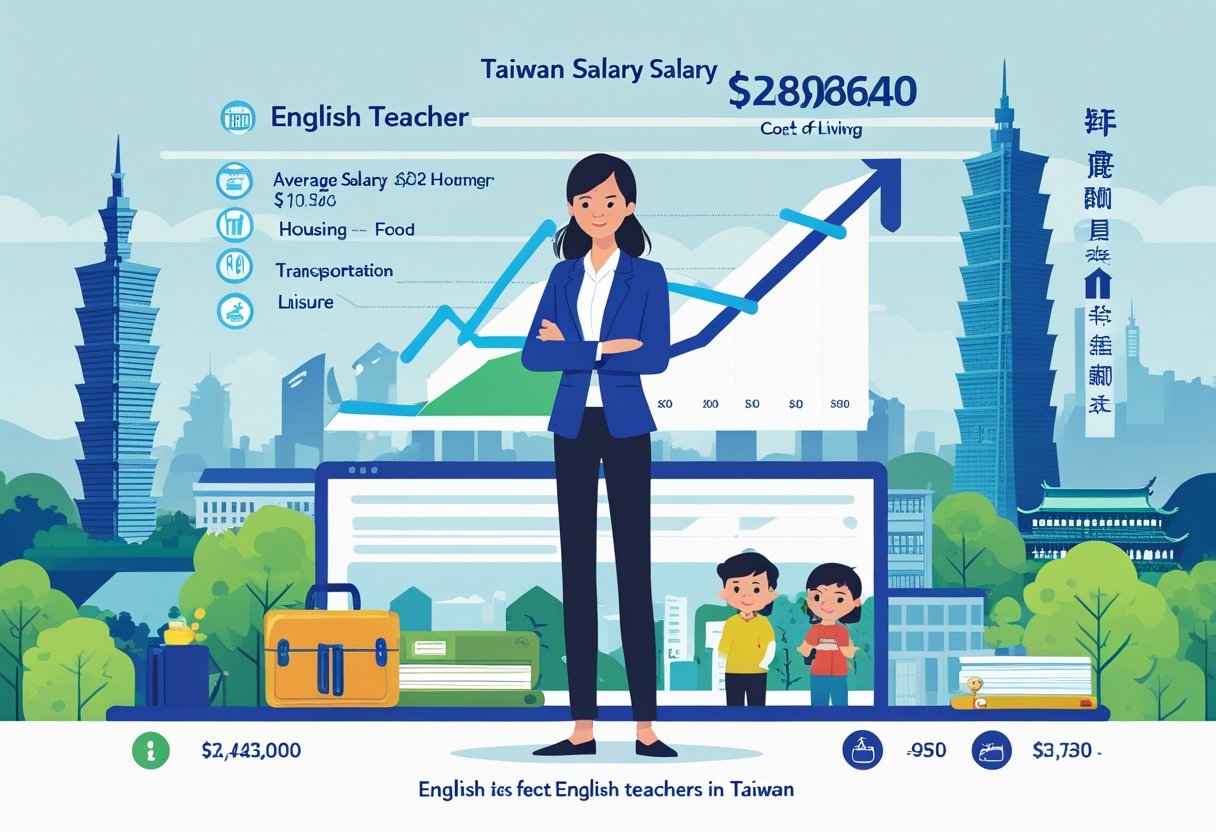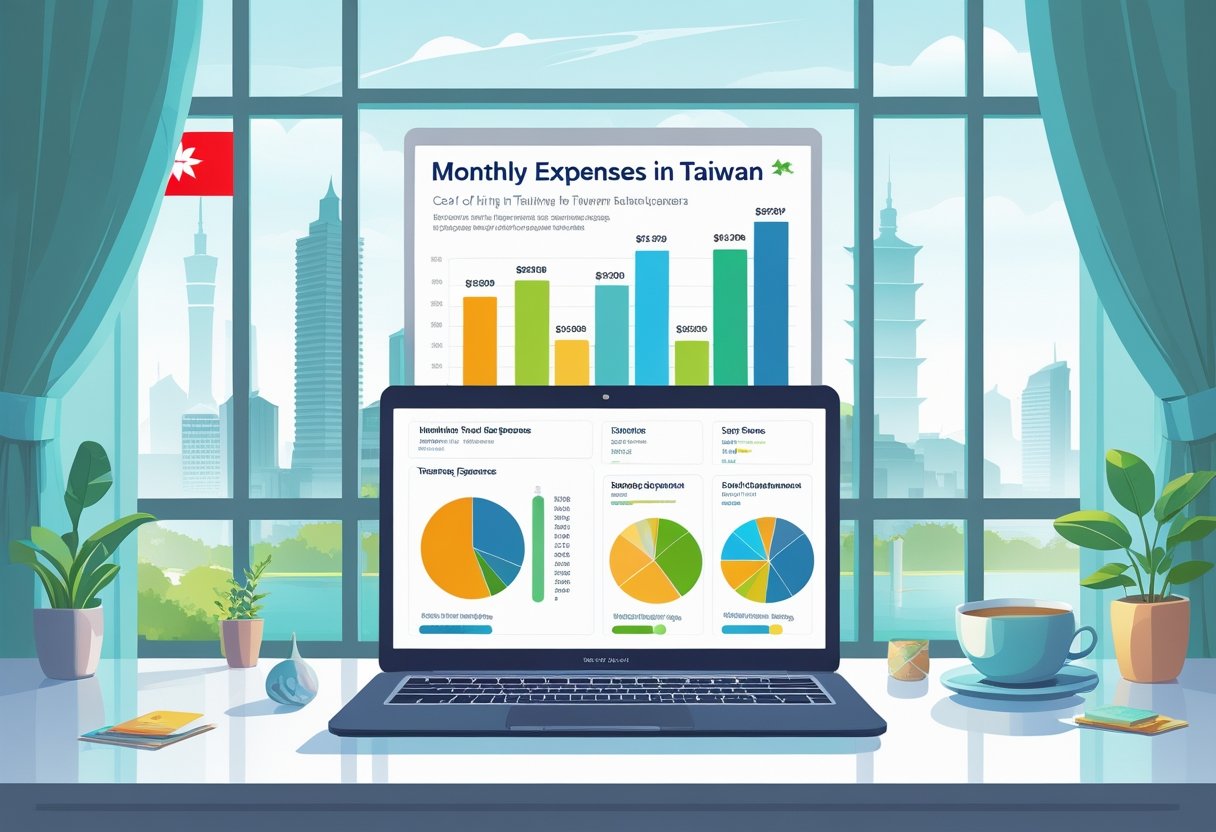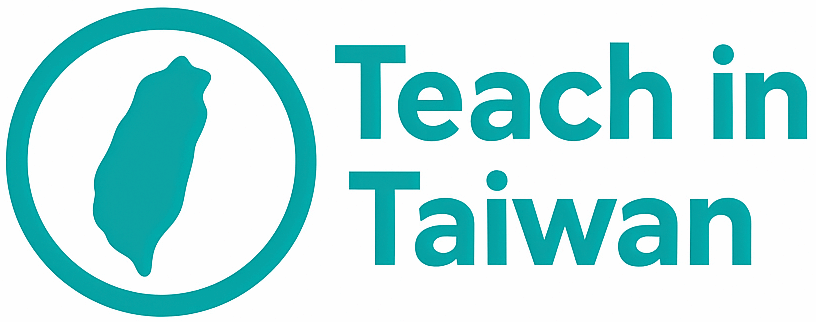Taiwan offers English teachers an attractive financial proposition that many other Asian countries struggle to match. Monthly salaries typically range from NT$55,000 to NT$80,000 (approximately $1,800 to $2,600 USD), while basic living expenses can be covered for around NT$38,000 per month, allowing teachers to save $800 to $1,500 monthly. The island’s combination of decent wages and relatively low costs creates opportunities for both comfortable living and substantial savings.

The financial landscape for English teachers in Taiwan extends beyond just salary figures. Teachers can access National Health Insurance, enjoy subsidized housing options, and take advantage of a transportation system that costs a fraction of what they’d pay in Western countries. Food, entertainment, and daily necessities remain affordable, while the country’s compact size makes weekend travel both accessible and budget-friendly.
Understanding the complete financial picture involves examining everything from initial setup costs and visa fees to monthly budgeting strategies and long-term saving potential. Teachers who plan strategically often find they can maintain a higher quality of life than they would back home while still building their savings account each month.
Overview of Teaching English in Taiwan

Taiwan offers diverse English teaching opportunities across multiple educational sectors, with strong demand concentrated in major cities like Taipei, Taoyuan, and Kaohsiung. The market spans from kindergartens to universities, providing options for teachers with varying qualifications and experience levels.
Types of English Teaching Jobs
Kindergartens represent one of the most accessible entry points for new teachers. These positions typically require minimal experience and offer salaries between NT$55,000-80,000 monthly. Class sizes remain smaller than other Asian countries, creating a less stressful teaching environment.
Cram schools (buxiban) dominate Taiwan’s private education sector. They hire year-round and welcome teachers without extensive experience. Most cram schools focus on conversation practice and test preparation for local students.
Public schools through the Foreign English Teacher (FET) program offer stable employment with government benefits. These positions require teaching licenses and often 1-2 years of experience. Salaries range from NT$60,000-75,000 monthly.
International schools provide the highest compensation at NT$80,000-140,000 monthly. They demand qualified teachers with proper credentials and significant classroom experience. These schools follow international curricula and serve expatriate families.
Universities offer part-time and full-time positions with flexible schedules. Most require master’s degrees and pay NT$50,000-75,000 monthly. Academic positions provide longer holidays but fewer total working hours.
Popular Cities for English Teachers
Taipei remains the top destination for English teachers in Taiwan. The capital offers the highest concentration of teaching positions across all education sectors. Monthly salaries range from NT$60,000-80,000, with private tutoring rates reaching NT$700-1,200 per hour.
The city provides excellent public transportation through its MRT system and extensive bus networks. Teachers can easily access cultural attractions, night markets, and weekend getaways to nearby mountains and coastal areas.
Taoyuan attracts teachers seeking proximity to Taipei without the higher living costs. The city serves as Taiwan’s gateway with its international airport and offers growing opportunities in both public and private schools.
Kaohsiung in southern Taiwan provides a more relaxed lifestyle with lower housing costs. The port city features a thriving expat community and increasing demand for English education as Taiwan’s second-largest metropolitan area.
Demand for English Teachers
English teacher demand in Taiwan remains consistently strong across all educational levels. The government’s bilingual education initiative has increased hiring at public schools, while private institutions continue expanding their English programs.
Peak hiring seasons occur from April to June for September starts and November to January for spring semesters. Kindergartens and cram schools hire year-round due to higher turnover rates.
Visa requirements limit positions to native English speakers from seven countries: USA, Canada, UK, Ireland, Australia, New Zealand, and South Africa. All teachers must obtain work permits through their employers before starting employment.
The market favors teachers under 55 years old, though Taiwan officially prohibits age discrimination. Schools increasingly prefer candidates with TEFL/TESOL certifications and bachelor’s degrees in any field.
Competition levels vary by location and season. Taipei sees the most competition during peak hiring periods, while smaller cities often struggle to attract qualified foreign teachers, creating better opportunities for newcomers.
Average Salary and Compensation

English teachers in Taiwan can expect monthly earnings between $1,800 to $3,500 USD depending on experience and qualifications. Hourly rates typically range from $15-21 USD, with additional income opportunities through private tutoring.
Typical Monthly Salary Range
Most English teachers in Taiwan earn between $2,000 to $3,000 USD per month in full-time positions. Entry-level teachers with basic qualifications start around $1,800 USD monthly.
Experienced teachers with advanced degrees or specialized certifications can command salaries up to $3,500 USD. Public school positions typically offer at least $1,000 NTD per hour.
Teaching English in Taiwan provides competitive compensation when compared to the low cost of living. Teachers can easily save $500 to $1,000 USD monthly while maintaining a comfortable lifestyle.
Location significantly impacts salary potential. Central Taipei positions pay more than rural areas, though living costs also increase proportionally.
Hourly Wages and Overtime
Hourly wages for English teachers in Taiwan range from NT$500-700 (US$15-21) per hour. Private language schools often pay per class rather than offering fixed salaries.
Teachers working multiple part-time positions can earn NT$115,500 monthly by teaching 48 hours at NT$600 per hour. This requires managing several jobs simultaneously.
Public school hours typically run from 8:30 AM to 5:00 PM, including planning and administrative duties. Overtime compensation varies by institution and contract terms.
Private Tutoring Income
Private tutoring offers English teachers in Taiwan substantial supplemental income beyond their regular teaching positions. Many teachers charge NT$800-1,200 per hour for one-on-one sessions.
Weekend and evening tutoring slots are in high demand among Taiwanese students. Teachers can add NT$20,000-40,000 monthly through consistent private lessons.
Business English tutoring commands premium rates, often reaching NT$1,500 per hour. Corporate clients typically prefer native speakers with professional experience.
Online tutoring platforms also provide flexible income opportunities for teachers seeking additional earnings.
Benefits and Allowances

English teachers in Taiwan receive various benefits beyond their base salary, including housing assistance, contract completion bonuses, and comprehensive health coverage. These additional benefits can significantly improve a teacher’s financial position and overall living experience.
Housing Stipends
Many schools in Taiwan provide housing assistance to foreign English teachers through stipends or direct accommodation arrangements. Public school programs often offer the most comprehensive housing benefits.
Teachers typically receive one of two housing options. Some schools provide fully furnished shared accommodations with other teachers at no cost. Others offer housing stipends ranging from NT$8,000 to NT$15,000 per month to help cover rental expenses.
Furnished rooms in shared apartments typically cost NT$4,000-8,000 monthly. Central Taipei locations command higher prices, while rural areas offer more affordable options.
Some schools also provide temporary housing for 2-4 weeks upon arrival. This gives new teachers time to find permanent accommodation with assistance from school staff.
Contract Completion Bonus
Contract completion bonuses reward teachers who fulfill their employment agreements. The bonus amount depends on contract length and school type.
Teachers on one-year contracts typically receive bonuses equivalent to one month’s salary. Two-year contracts often offer bonuses worth 1.5 to 2 months of salary.
Public school programs generally provide the most generous completion bonuses. Private language schools may offer smaller amounts or alternative benefits.
Payment usually occurs within 30 days of contract completion. Some schools require teachers to remain in Taiwan until the bonus is processed.
Health Insurance and Airfare Reimbursement
Taiwan requires all foreign teachers to maintain health insurance coverage. Most schools assist with enrollment in the national health insurance system.
Health insurance costs approximately NT$780-935 monthly. With coverage, routine medical check-ups cost only NT$124-156. Emergency treatments and specialist visits remain affordable.
Airfare reimbursement varies by contract terms. One-year contracts typically cover 50% of return flight costs. Two-year agreements often provide 100% reimbursement for round-trip airfare from the teacher’s home country.
Full-time positions include flight benefits, while part-time and casual teaching positions do not. Teachers should confirm reimbursement details before signing contracts.
Monthly Expenses Breakdown

English teachers living in Taiwan can expect monthly expenses between NT$25,000-35,000 for basic living costs. Housing represents the largest expense, while food and utilities remain relatively affordable compared to Western countries.
Accommodation Costs
Shared apartments are the most popular choice for English teachers in Taiwan. A furnished room in a shared apartment typically costs NT$8,000-15,000 per month in Taipei.
Teachers can find cheaper options in smaller cities like Taichung or Tainan for NT$6,000-10,000 monthly. These accommodations usually include basic furniture and kitchen access.
Studio apartments offer more privacy but cost NT$15,000-25,000 in major cities. Rural areas provide better deals at NT$10,000-18,000 per month.
Most landlords require a two-month security deposit upfront. Utility costs are often split among roommates in shared living situations.
Utilities and Internet
Monthly utility bills for a shared apartment typically range from NT$500-1,200 per person. This includes electricity, water, and gas for basic needs.
Electricity costs fluctuate with air conditioning usage during Taiwan’s humid summers. Teachers can expect higher bills from May through September.
High-speed internet costs NT$600-1,000 monthly for reliable connections. Many apartments include internet in the rent, making this a negotiable expense.
Mobile phone plans with unlimited data cost NT$499-999 per month. Teachers often choose mid-range plans around NT$699 for good coverage and data allowances.
Groceries and Eating Out
Local food stalls offer complete meals for NT$60-90, making eating out extremely affordable. Night markets provide diverse options at similar price points.
Teachers who cook at home spend NT$3,000-5,000 monthly on groceries. Local markets offer fresh produce at lower costs than supermarkets.
Western restaurants cost more at NT$200-400 per meal. Coffee shops charge NT$80-150 for drinks, similar to international chains.
Many teachers combine home cooking with frequent dining out. The abundance of cheap, quality local food makes this approach both practical and economical.
Lifestyle and Cost Considerations

Living in Taiwan offers English teachers affordable transportation options, diverse entertainment choices, and excellent regional travel opportunities. These lifestyle elements contribute significantly to the overall monthly budget beyond basic living expenses.
Transportation and Commuting
Most English teachers in Taiwan purchase a used scooter for daily transportation. A reliable used scooter costs approximately NT$15,000-20,000 (US$481-641).
Scooters provide the most cost-effective and time-efficient commuting option. Teachers can navigate traffic easily and reach multiple teaching locations throughout the day.
Public transportation offers another budget-friendly alternative. The MRT system in Taipei provides clean, efficient service at low costs.
Monthly public transport passes help teachers save money on regular commuting. Bus systems connect smaller cities and rural areas effectively.
Taxi services are available but cost significantly more than scooters or public transport. Teachers typically reserve taxis for late-night travel or heavy shopping trips.
Entertainment and Nightlife
Taiwan’s entertainment scene fits most English teacher budgets comfortably. Local Taiwanese beers cost around NT$60 (US$2) at pubs and bars.
Imported beers run approximately NT$106 (US$3.50) per drink. Night markets provide inexpensive entertainment with food, games, and shopping.
Karaoke remains extremely popular and affordable for groups. Movie theaters offer English films with Chinese subtitles at reasonable prices.
Coffee shops and tea houses provide social spaces for teachers to meet locals and other expatriates. Many establishments offer free Wi-Fi for digital nomads.
Street food and local restaurants keep dining costs low during social outings. Teachers can enjoy full meals for NT$60-90 (US$2-3) at food stalls.
Travel Opportunities
Taiwan’s compact size makes weekend travel highly accessible for English teachers. Domestic transportation costs remain minimal due to efficient bus and train networks.
The High Speed Rail connects major cities quickly and affordably. Teachers can explore the entire island during school holidays without significant expense.
Budget airlines offer cheap flights to nearby countries like Japan, Korea, and Southeast Asian destinations. Many teachers use school breaks for regional exploration.
Hostels and guesthouses throughout Taiwan provide affordable accommodation for domestic trips. Mountain hiking and coastal activities offer free recreational options.
International travel becomes more affordable due to Taiwan’s strategic Asian location. Teachers can reach major regional destinations within 3-4 hours flight time.
Saving Potential for English Teachers
English teachers in Taiwan can typically save $800-$1,200 per month with proper budgeting and financial planning. The combination of decent salaries and low living costs creates favorable conditions for building savings and managing existing debts.
Typical Savings Rates
Teachers earning the average English teacher salary of NT$62,352 ($2,000 USD) monthly can realistically save 40-60% of their income. Those working multiple part-time positions often earn more and increase their savings potential significantly.
Monthly savings of $800-$1,200 are common for teachers who budget carefully. Teachers earning NT$600 ($20 USD) per hour and working 48 hours weekly can make NT$115,500 ($3,750 USD) monthly, though this requires juggling multiple jobs.
Factors affecting savings rates:
- Housing choice: Shared apartments vs. private studios
- Location: Central Taipei vs. smaller cities
- Teaching schedule: Full-time vs. multiple part-time positions
- Lifestyle preferences: Local food vs. Western dining
Teachers who embrace local living costs save more than those maintaining expensive Western lifestyles. Smart budgeters often save 50% or more of their monthly income.
Managing Student Loans or Debts
Taiwan’s favorable exchange rate helps teachers tackle debts from home countries more effectively. The NT$62,352 average monthly salary converts to substantial purchasing power for debt payments.
Teachers can allocate $500-$800 monthly toward student loan payments while maintaining comfortable living standards. The low cost of living means basic expenses consume only 40-50% of income, leaving significant room for debt management.
Many teachers use income-driven repayment plans for federal student loans. They coordinate payment schedules with Taiwan’s monthly salary cycles to avoid currency conversion fees.
Debt management strategies:
- Set up automatic transfers during favorable exchange rates
- Use international banking services with low transfer fees
- Consider accelerated payments during high-earning months
Building a Financial Safety Net
Teachers should establish emergency funds covering 3-6 months of living expenses. With monthly costs around $800-$1,200, an emergency fund of $2,400-$7,200 provides adequate security.
Opening local Taiwan bank accounts helps teachers avoid international transfer fees for daily expenses. Many teachers maintain both local and home country accounts for different financial needs.
Recommended financial safety net components:
- Emergency fund: 3-6 months expenses in Taiwan bank
- Medical coverage: Government-required insurance costs NT$780-$935 monthly
- Transportation backup: Funds for scooter repairs or replacement
- Contract transition fund: Money for potential job changes
Teachers often build their safety nets within the first 6-8 months of teaching. The combination of steady income and low expenses makes financial security achievable relatively quickly.
Key Requirements and Start-Up Costs
Moving to Taiwan as an English teacher involves several upfront expenses and certification requirements. Teachers typically need to budget for TEFL certification, visa processing fees, and initial relocation costs before earning their first paycheck.
TEFL Certification Fees
Most schools in Taiwan require teachers to hold a TEFL certificate as a basic qualification. Online TEFL courses typically cost between $200-$500, while in-person programs range from $1,000-$2,500.
Teachers can choose from various certification options:
Online Courses: $200-$500
- 120-hour programs are standard
- Self-paced completion in 4-8 weeks
- Internationally recognized certificates
In-Person Programs: $1,000-$2,500
- Include practical teaching experience
- 4-week intensive courses
- Better preparation for classroom management
Many employers accept online TEFL certificates, making them the most cost-effective option. Teachers should verify their chosen program provides internationally recognized certification before enrolling.
Visa and Work Permit Expenses
Teachers must obtain proper documentation before legally working in Taiwan. The work permit and visa process involves multiple fees and requirements.
Document Preparation: $100-$300
- FBI background check: $50-$100
- Diploma authentication: $50-$200
- Medical examination: $100-$300
Visa Application: $160-$180
- Single-entry visitor visa: $37
- Multiple-entry visa: $74
- Work permit processing: $50-$100
Teachers must also factor in potential courier fees for document submission and processing times that may require extended stays on tourist visas initially.
Relocation and Initial Setup
Initial setup costs in Taiwan can range from $2,000-$4,000 depending on housing choices and lifestyle preferences. Most teachers need funds to cover their first month before receiving paychecks.
Housing Deposits: $400-$800
- First month’s rent: $200-$400
- Security deposit: $200-$400
- Utility connections: $50-$100
Transportation: $500-$650
- Used scooter purchase: $480-$640
- Scooter license and registration: $20-$50
Living Essentials: $300-$500
- Phone setup and plan: $30-$50
- Kitchen supplies and bedding: $200-$300
- Initial food and groceries: $100-$150
Teachers should budget for at least one month of living expenses while waiting for their first salary payment.


